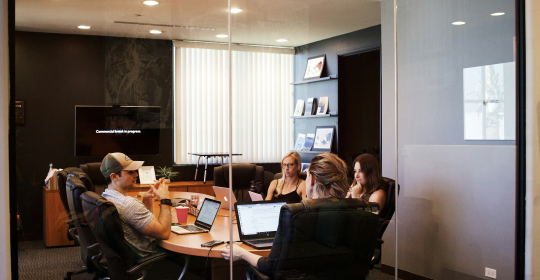A new study conducted by leading ground transportation and accommodation solutions service, CMAC Group, analysed the opinions of 1,000 UK adults to get their thoughts on whether the benefits of working from home are still relevant four years on, or if their perspectives have changed now that it’s part of their daily routine.
The challenges of remote work
There was a clear theme that many are starting to face unexpected challenges associated with remote work. Among those who participated in the survey, 33.74% reported that distractions at home are a major obstacle, 21.15% expressed that they face difficulties accessing resources needed to adequately fulfil their role and 21.90% said communication with colleagues has become a key issue.
Attending in-person meetings was seen as a key benefit in addressing these concerns, with 55.40% of respondents believing that face-to-face meetings are more effective than virtual ones and 24.90% deeming them much more effective.
21.75% expressed that in-person meetings resulted in better communication, more engagement (23.99%), improved decision-making (13.43%), and the ability to read body language (22.20%).
Working from home in some instances was also found to be having a negative mental impact on certain participants, with 20.33% expressing they felt feelings of isolation which contributed to the complexity of working from home. A notable 73.10% said they feel more connected when working in the office compared to remotely.
Peter Slater, CEO of CMAC Group, commented on the findings, saying: "These insights clearly show that while remote work offers flexibility, the irreplaceable value of face-to-face interactions cannot be ignored.
“Business travel not only enhances communication and decision-making but also creates trust, strengthens relationships and creates a strong sense of connection among colleagues. In an increasingly digital world, the human element is essential for driving innovation, collaboration and long-term success.”
To emphasise this, internal company events such as team-building and social activities were deemed important by a majority of respondents, with a combined 48.10% considering these events either extremely important or important, suggesting that maintaining some level of physical presence in the workplace, such as events, plays a crucial role in maintaining team cohesion and morale.
The impact on business objectives
Opinions on how remote working impacts overall company performance are mixed. While 46.90% believe it improves performance, 20.40% feel it worsens it due to reasons such as lack of clear communication, human interaction and relationship building.
Meeting clients in person was found to be a clear benefit for business outcomes, with 81.90% of respondents agreeing that it has a positive impact and 69.40% believing that it helps to strengthen client relationships. 15.58% also found meeting clients as an important networking opportunity for both personal and business growth.
Additionally, face-to-face interaction is viewed as vital for career advancement, with 61.80% rating it as either very important or important for their progression.
Slater added: “The data shows that business travel is still something companies should be investing in, not just for the growth and success of their business but for the growth and success of their employees development too.
“Balancing remote work with strategic business travel is key to building and maintaining relationships, increasing effective communication, and driving overall results. Investing in business travel is not just about moving people from one place to another, it's about bridging gaps, building trust, and creating opportunities for growth.”






